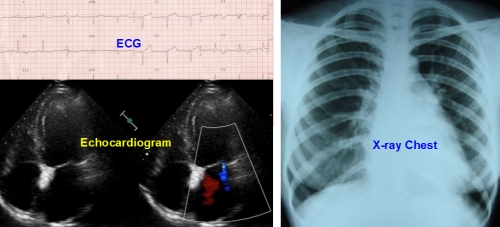Evaluation of heart function prior to another surgery

What is the purpose of evaluation of heart function prior to another surgery?
The purpose of evaluation of heart function prior to any other operation (surgery) is not just to give ‘fitness for surgery’. Very often surgeries are undertaken in those who are ‘unfit’ as per conventional thinking. This is because of dire necessity of the surgical procedure. For example, a person needing surgery for a major head injury, will be taken for surgery even if he has a significant heart problem. Here surgical treatment of head injury gets priority over the underlying illness of the heart due to its life threatening nature. So it is basically a balancing of risk vs benefit, while evaluating a person for cardiac ‘fitness’ prior to surgery. Similarly if it is a surgery for cancer, even those with a major cardiac illness, may be taken up, of course with all necessary precautions.
Cardiac evaluation prior to other surgeries is meant to give a comprehensive assessment of cardiac status of the individual so that a care plan can be given to the surgeon, anaesthesiologist, physician, nurse, patient and other care givers. Cardiac evaluation report gives suggestions to the team taking care of the patient through the surgery regarding for optimal results, preventing cardiac complications as far as possible. Very often the cardiologist is part of the team taking care of patients with significant heart problems before and after the surgery. Within the operation theatre, it is mostly the anaesthesiologist who takes care of the cardiac status, as they are more familiar with the changes which are likely to occur in the circulatory system during anaesthesia.
What tests are done while assessing the cardiac status of a person prior to surgery?
In addition to routine blood tests done prior to all surgeries, electrocardiogram (ECG), chest X-ray and an echocardiogram (ultrasound imaging of the heart) are the tests likely to be done in case there is a specific request for evaluation of heart function. In certain cases, a treadmill exercise ECG (TMT for short) may also be done. But in many cases, patient may not be fit to undergo a treadmill exercise test, due to the illness for which surgery is being planned. In very rare instances, coronary angiography (injecting radiocontrast material into the blood vessels of the heart and getting cine X-ray images) may also done prior to major high risk surgeries.



